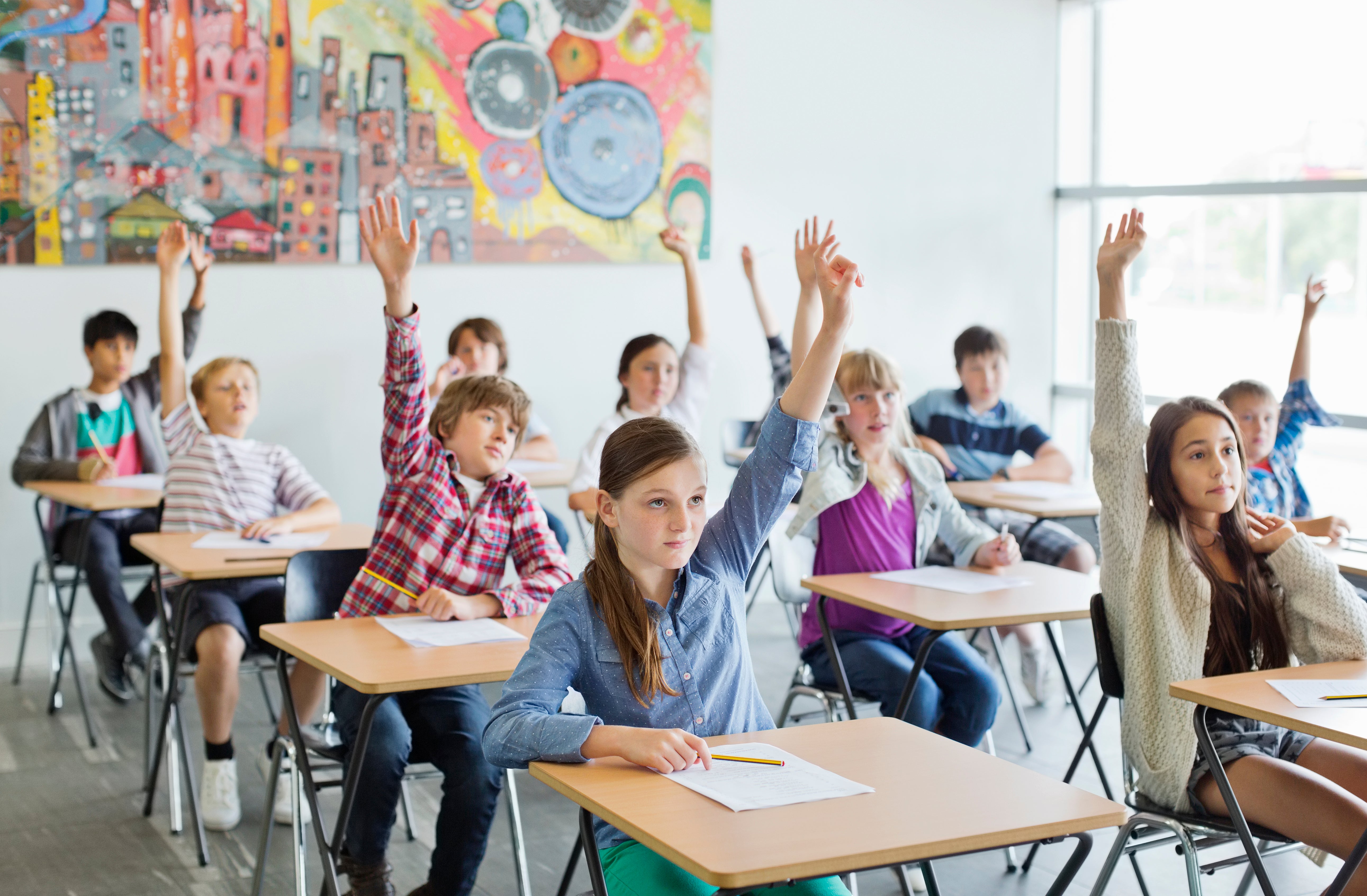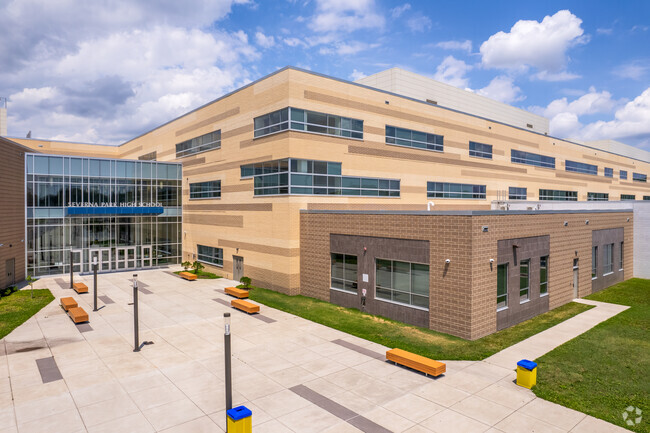Understanding the Significance of Schools in Child Growth and Area Development
Schools work as essential organizations for child development and community growth, giving atmospheres where scholastic achievements are matched by the cultivation of social skills and exposure to diverse point of views. These educational setups not only advertise essential thinking and reliable communication however likewise foster compassion through joint jobs. Colleges' engagement with local communities via service-learning campaigns strengthens the bond in between households and instructional establishments. This symbiotic connection underscores the significance of institutions in supporting active citizenship and lifelong learning routines. Nonetheless, what are the specific mechanisms by which these institutions accomplish such extensive effects?
Academic Accomplishment
Academic achievement serves as a keystone of kid development, offering the structure upon which future understanding and success are developed. Schools play a pivotal duty in cultivating this academic development, using organized environments where youngsters can acquire crucial expertise and cognitive abilities. Standardized educational program guarantee that pupils gain effectiveness in core subjects such as maths, science, and language arts, which are essential for both college and expert opportunities.
In enhancement to giving essential scholastic skills, schools also grow critical reasoning, analytical capabilities, and intellectual inquisitiveness. These cognitive competencies are essential for browsing complex real-world situations and adapting to the ever-evolving needs of the modern work environment. Educators, as facilitators of discovering, employ varied instructional methods to deal with different discovering styles, therefore making best use of individual pupil capacity.
Furthermore, academic success is carefully linked to self-confidence and inspiration. Kids that experience scholastic achievements are a lot more likely to create a positive self-concept and a long-lasting passion for understanding. Colleges also provide numerous sources, such as collections and modern technology, which better improve the educational experience and prepare trainees for a technically sophisticated society.
Social Ability Development
Beyond academic accomplishment, the duty of institutions in social ability development is crucial. Schools function as a main location for youngsters to discover and exercise crucial social abilities such as problem, interaction, and cooperation resolution. In the organized setting of a class, pupils interact with peers, instructors, and various other school personnel, supplying various possibilities to develop these crucial capabilities.
Efficient social skill advancement in institutions is assisted in via group tasks, joint jobs, and extracurricular programs. These communications assist pupils understand social standards, construct empathy, and promote a sense of area. For circumstances, group tasks instruct pupils just how to interact towards a common goal, listen to various perspectives, and browse arguments constructively.

The growing of social skills during academic year lays a foundation for future individual and expert partnerships. Save Temecula Schools. As students mature, the ability to efficiently collaborate and connect ends up being progressively crucial, highlighting the school's critical function in holistic youngster growth
Direct Exposure to Variety
Exposure to variety in colleges is basic to cultivating an inclusive mindset and broadening students' viewpoints. Schools serve as a microcosm of the wider culture, and running into varied societies, languages, and socioeconomic histories within this environment equips students with crucial skills for navigating an increasingly globalized world. This direct exposure urges compassion, lowers bias, and promotes common regard among peers.
Research study indicates that pupils who interact with peers from diverse backgrounds exhibit much better problem-solving abilities and imagination. This understanding of variety prepares trainees for future workplaces that worth multicultural competence - Save Temecula Schools.

Area Involvement
The benefits of diverse class expand past the college wall surfaces, promoting a solid feeling of community engagement amongst students. By communicating with peers from different cultural, socioeconomic, and ethnic backgrounds, trainees get a more comprehensive viewpoint and a gratitude for diversity. This exposure encourages them to become active citizens that agree to contribute positively to their areas.
Colleges that stress area involvement usually include service-learning tasks, which permit trainees to attend to real-world issues while applying scholastic abilities. These jobs not just enhance students' understanding of their coursework yet likewise impart a sense of duty and empathy. Furthermore, collaborations between colleges and neighborhood organizations provide students with possibilities to take part in area events, further strengthening their function as positive area members.
In addition, parental and area participation in institutions strengthens the bond in between academic institutions and the communities they serve. They produce a collective atmosphere that profits all stakeholders when institutions open their doors to area events, workshops, and volunteer chances. This shared support group guarantees that pupils receive holistic development, preparing them to end up being well-rounded individuals that contribute and value to their neighborhoods. Via these efforts, institutions play a critical role in supporting area interaction and promoting social development.
Lifelong Discovering Behaviors
Developing lifelong knowing routines is vital for a youngster's continual development and flexibility in an ever-changing globe. Institutions play a crucial duty in instilling these habits by creating an atmosphere that fosters curiosity, crucial thinking, and a love for understanding. Through varied educational programs and after-school activities, instructors urge pupils to discover get redirected here various topics, examine info seriously, and use their learning to real-world situations.

In addition, institutions provide an organized setting where children can establish try here self-control and time management abilities, both of which are essential for constant understanding. By emphasizing the relevance of setting objectives, mirroring on development, and adjusting methods, academic establishments prepare pupils to navigate the complexities of grown-up life, ensuring they stay long-lasting students and factors to culture.
Conclusion
Finally, institutions are necessary in cultivating youngster development and community growth by offering atmospheres for academic accomplishment, social ability advancement, and direct exposure to variety. With joint tasks and communications, colleges boost essential reasoning, compassion, and interaction abilities. Neighborhood interaction initiatives additionally enhance the bond in between universities and local neighborhoods. Ultimately, schools grow long-lasting discovering routines, furnishing individuals with the required knowledge and skills to add favorably to society.
In the structured setting of a classroom, trainees interact with peers, instructors, and various other institution personnel, supplying various possibilities to develop these critical capacities.
In essence, direct exposure to variety within schools not just improves private trainees yet also enhances the social textile of the area as a whole.
The advantages of varied class extend beyond the institution wall surfaces, fostering a solid feeling of community interaction amongst pupils.Schools that highlight community interaction commonly include service-learning projects, which enable students to attend to real-world troubles while using academic skills. Partnerships between institutions and neighborhood organizations offer trainees with chances to get involved in area events, better strengthening their role as proactive community members.